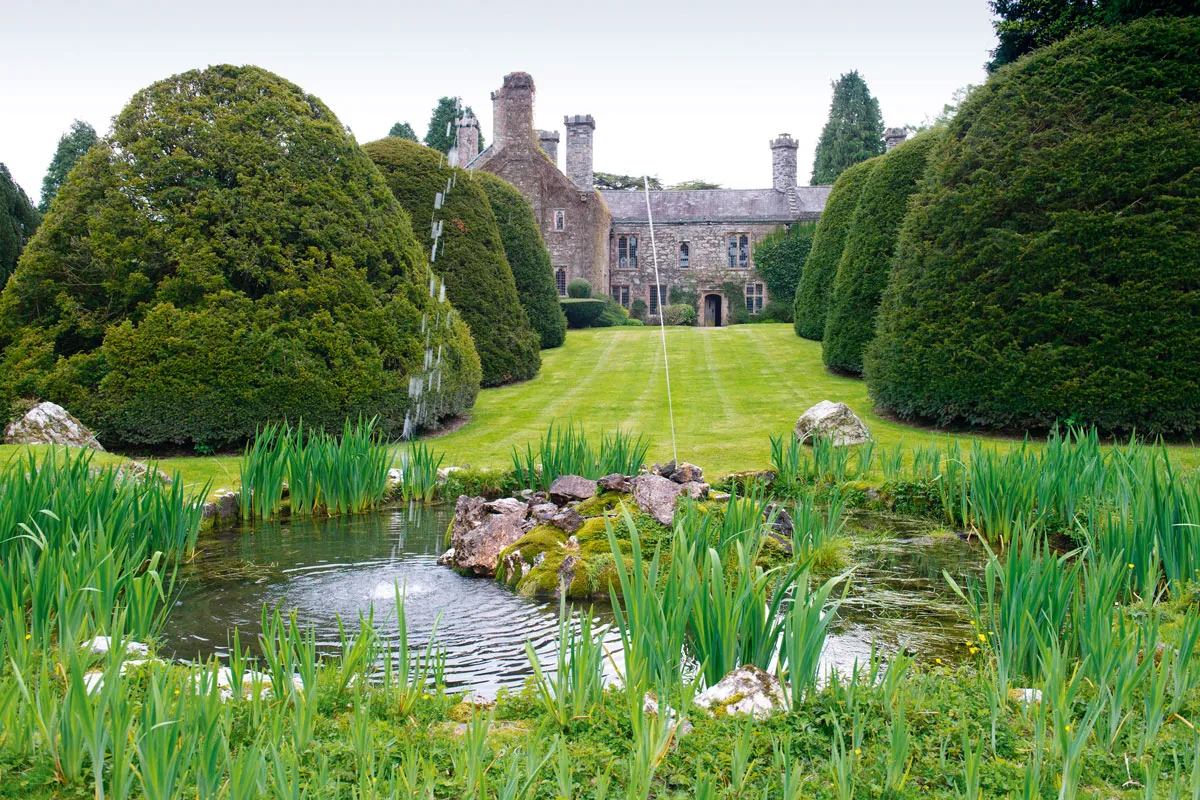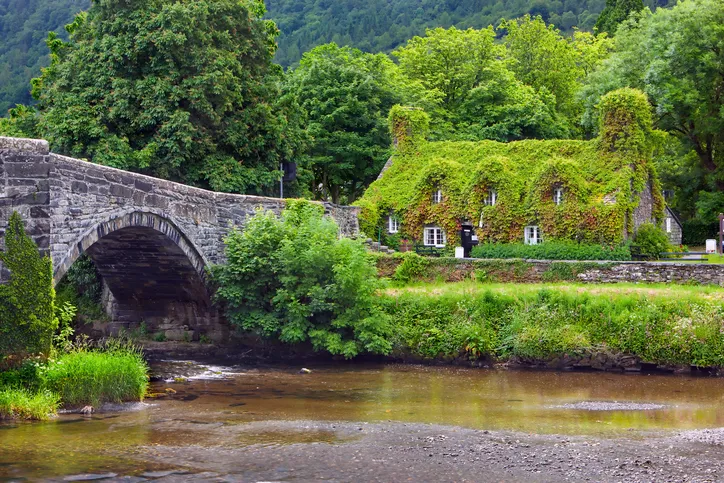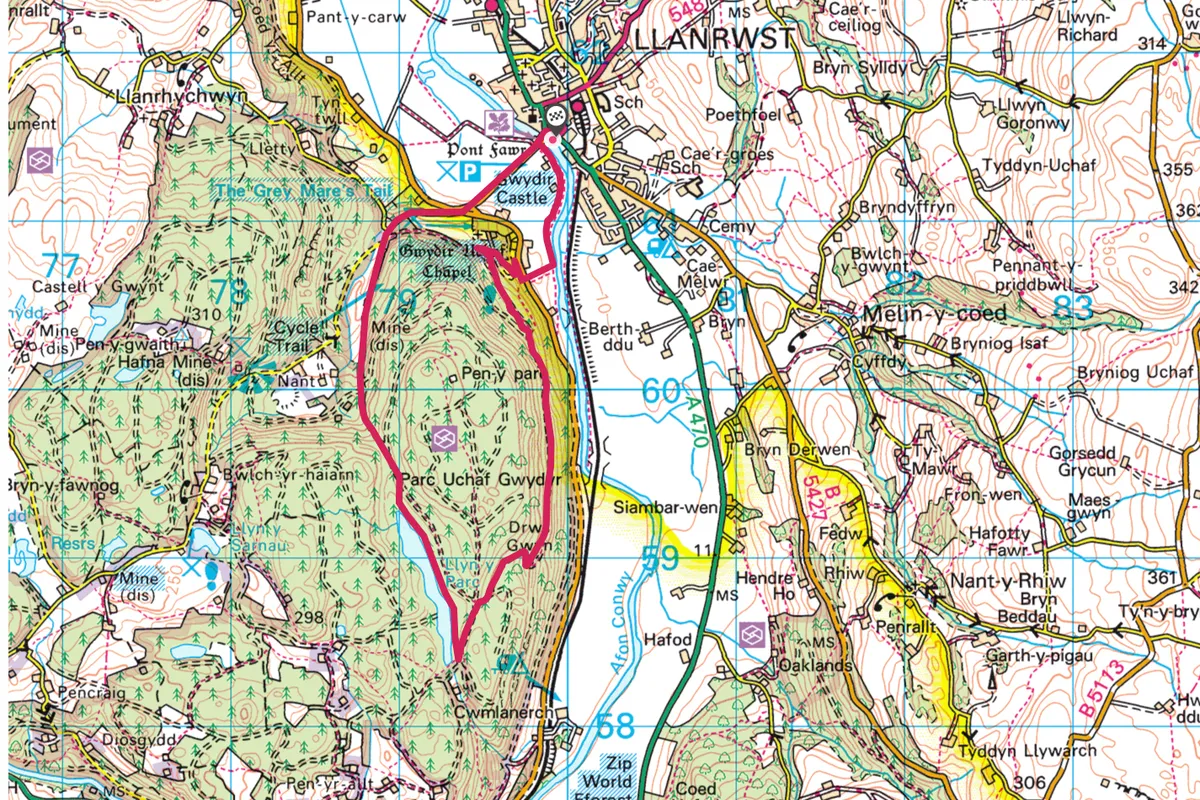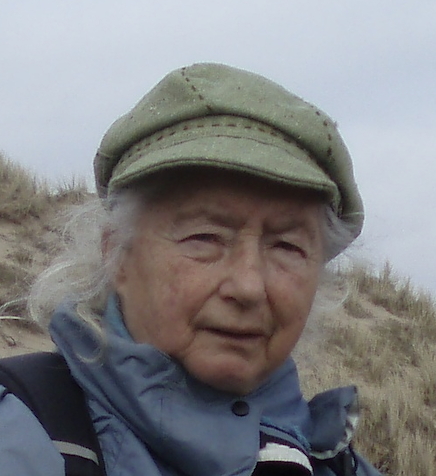Gwydir Castle stands beside an old road connecting the market town of Llanrwst with the village of Betws-y-Coed in the lush Conwy Valley. It’s a peaceful place – but it hasn’t always been that way.
Back in the late 15th century, this lawless, wasted land was occupied by bandits. But it was soon brought under control by Meredith ap Ieuan – leading regional supporter of King Henry VII – and his bowmen. Meredith and his men rebuilt the castle around 1490 and it became the ancestral home of the powerful Wynn dynasty. Towards the end of the Tudor period, Meredith’s great grandson Sir John Wynn was the most powerful landowner in north Wales.

Entry to the castle is through the courtyard and, opposite the gate, Meredith ap Ieuan’s Solar Tower stands fronted by a storeyed porch added by Sir John Wynn. Inside is an immense three-metre wide fireplace and, along the passageway, you’ll find the Lower Hall with its impressive Tudor beams and portrait of the baronet.
Stairways climb to the Hall of Meredith, where a chimney breast contained a hidden priest hole, while the Great Chamber was used as the reception room during the Elizabethan era. Off to the side of the passageway is the Ghost Room, said to be haunted by a murdered maid.
The gardens, now home to several peacocks, were used to grow quinces and citrus fruits in the Elizabethan period.
Explore a Tudor mansion and its former estate on the edge of the Snowdonia National Park in Wales with our easy walking route of Gwydir Castle, Llanrwst, Conwy.

There’s lots more to explore too – try this pretty amble from Llanrwst to Llyn y Parc.
You may also like
Gwydir Castle walk
5.3 miles/8.5km | 3 hours | moderate
1. Deliver by river
From the town of Llanrwst, cross the bridge over the splashing waters of the River Conwy and bear left along the waterside path.
After passing the football pitch, you’ll see a wide wall stretching across the field from Gwydir Castle. This marks the site of an Elizabethan quay that led down to the riverbank. It was here that small ships and barges would have delivered wine, tobacco and other goods. There are large stone slabs down by the water that mark where the quay once stood.

Cross two stiles, the second on your right, and walk up the field to the road. Turn right and soon after go left at a sign for Gwydyr Forest Park. (If you are yet to visit the castle, continue straight up the road to find it). After a right bend, walk uphill to a track on the left. Before taking it, look ahead to see Sir John Wynn’s old Gwydyr Uchaf summerhouse, now a Forestry Commission office. Most of the surrounding land was laid out as gardens.
2. Pleasure gardens
Go left around the barrier to meet another track. After a footpath on the left and before a track on the right, you’ll arrive at the site of a Tudor bowling green, part of Gwydir’s historic pleasure gardens. Sir John Wynn brought his guests here to admire the glorious views over his estate. With a picnic table and bench overlooking Llanrwst, it is a great place to take a break.
The walk follows the track ahead through an area of felled woodland, with wide vistas across the Conwy Valley. The way eventually emerges on to a forest track. Ignore the two trails on the right and go left downhill, looking out for a path on the right just before reaching the Llyn y Parc dam.
3. Weaving ways
At the dam, either take the trail beside the lake or retrace your steps a few yards to the path seen earlier. They join up and weave in and out of the trees at varying distances from the water’s edge. After passing the end of the lake, the path bears sharply to the right to join a forest track. Turn left to meet a fork, and then veer left downhill through a former lead and zinc mining area.
Follow the track to a lane and turn right, soon joining the B5106. Here, turn right for another chance to visit the splendid Gwydir Castle, or continue straight on along the pavement to return to Llanrwst.
Gwydir Castle map
Gwydir Castle walking route and map

